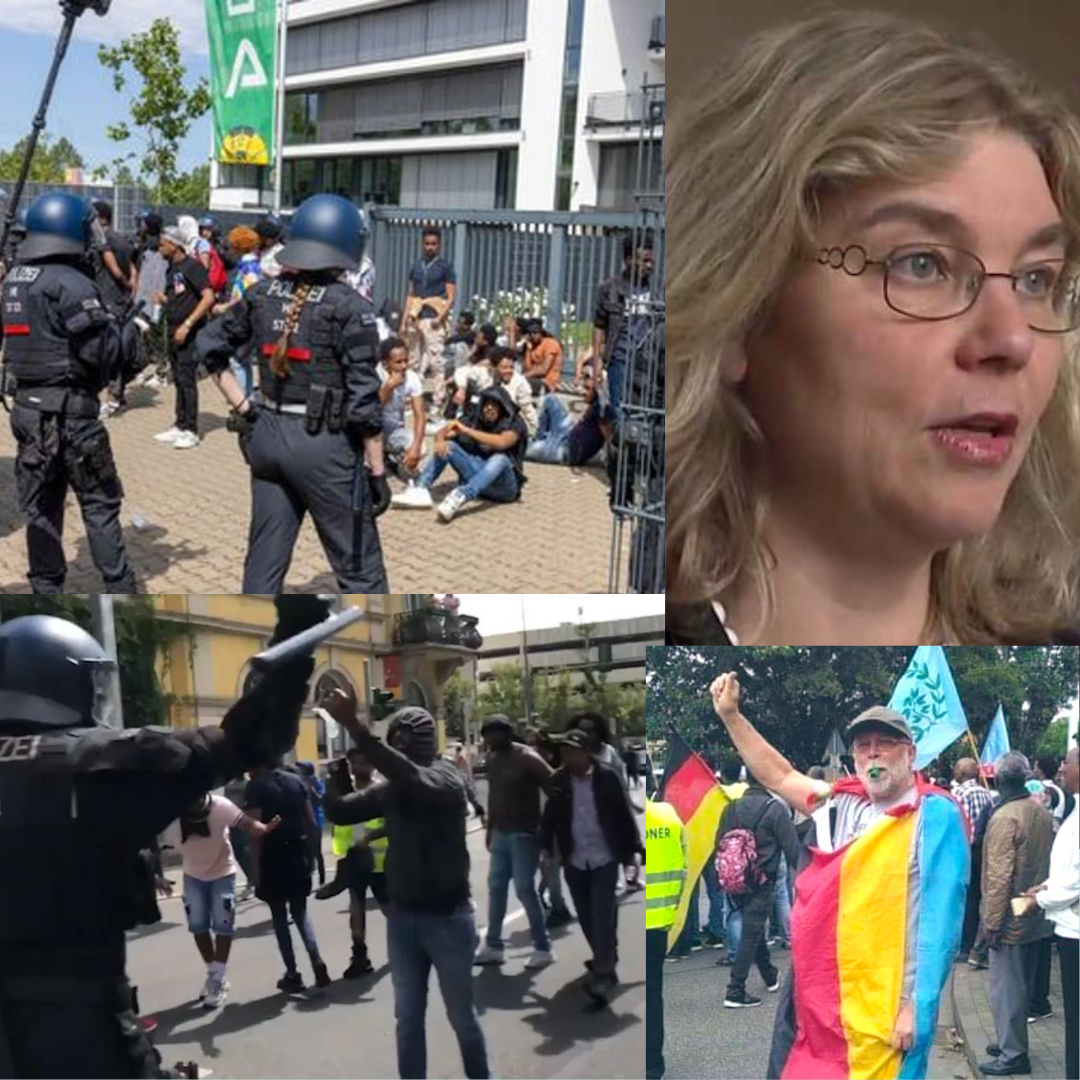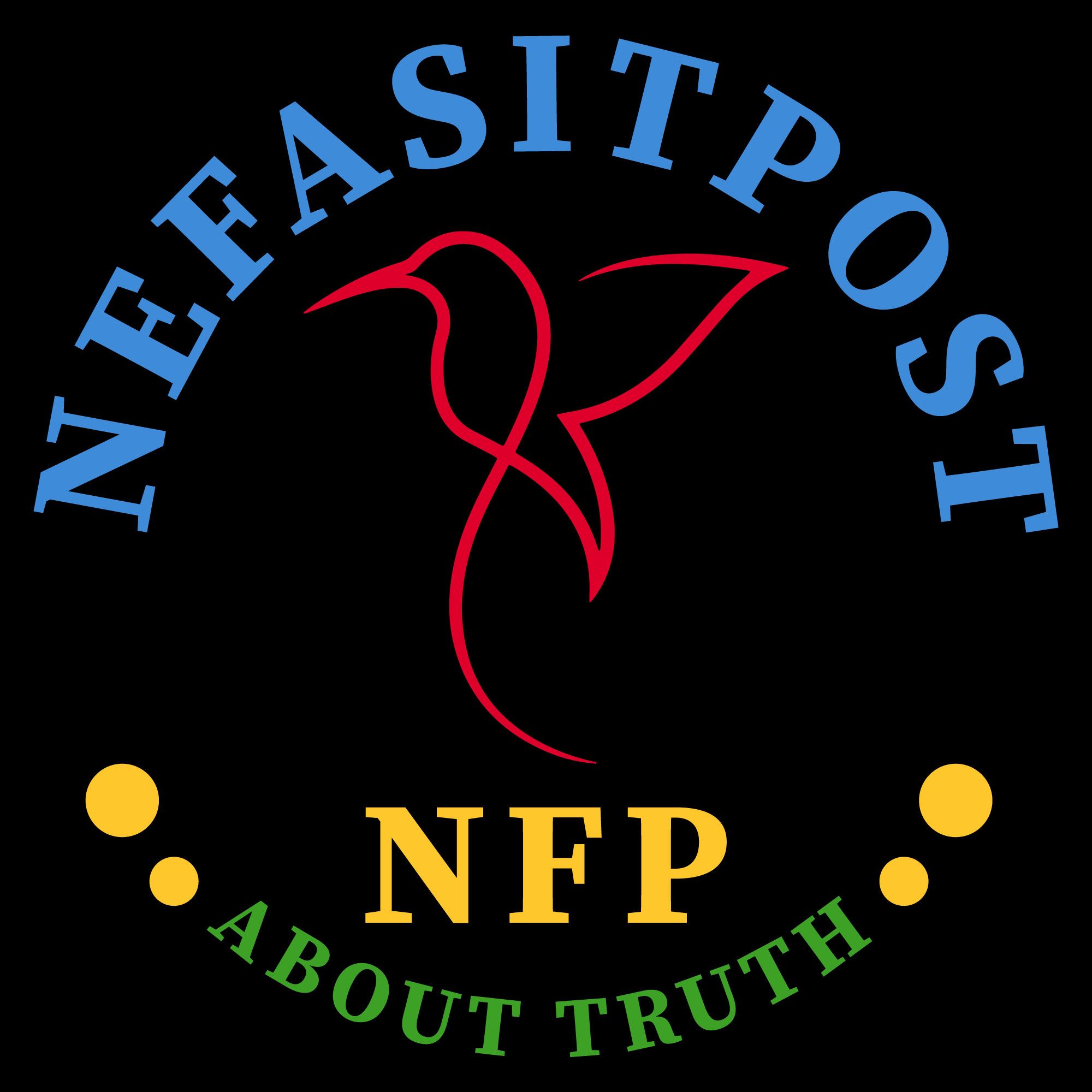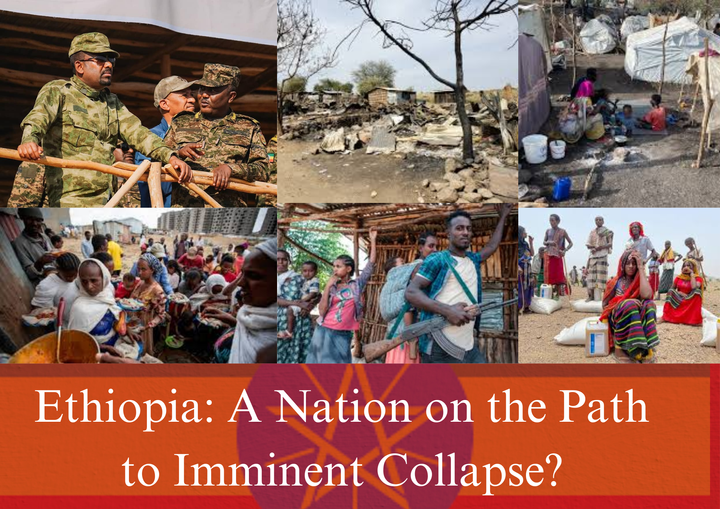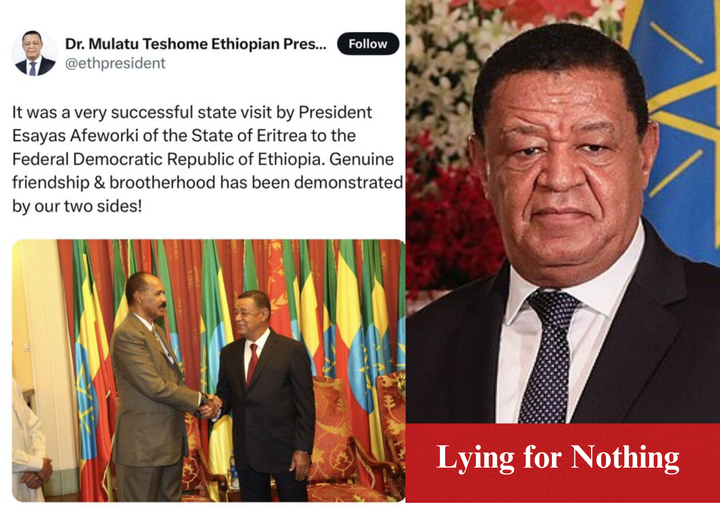Discrimination and Racism: Eritrean Festivals Targeted and Banned in Europe
Discriminatory practices & racism at Eritrean festivals in Europe. Discriminatory bans and disruptions persist, denying human rights and fueling division. It's time for Blacks, NAACP & others to address systemic racism in Europe.

Amanuel Biedemariam
Recent events have highlighted discriminatory practices and racism at Eritrean Festivals in Europe. The cancellation of the Eritrean Festival UK 2023 by Harrow Council has caused concern and disappointment among British Eritrean communities and organizations. This action is perceived as biased against Eritreans, Africans, and people of African descent and is seen as a denial of their human rights and unjust vilification. However, the issue is not limited to the UK but throughout Europe.
Since 2013 the rights of Eritreans in Giessen, Germany, have been flagrantly violated disturbingly and recklessly. Unfortunately, the Green Party in Germany has taken it upon itself to obstruct and hinder peaceful gatherings of Eritreans, collaborating with violent supporters of the Tigray People's Liberation Party (TPLF) and creating divisions within the Black community. The question arises as to why Eritrean communities' serene festivities are specifically targeted for disruption and who should be held accountable for these actions.
In a comprehensive campaign aimed at destabilizing the Eritrean government, various tactics such as warfare, sanctions, embargoes, and social and economic disruptions were employed, significantly impacting the population. Notably, in 2000, several Western countries, including Germany, adopted a policy of granting blanket asylum to individuals who claimed to be Eritrean citizens.
It is essential to recognize that from 1991 to 2018, Ethiopia was governed by the Tigray People's Liberation Front (TPLF), a minority group representing only 6% of the Ethiopian population.
The TPLF employed tactics to entice Eritrean individuals to leave their homeland to reduce the population of Eritrea. Once these Eritreans arrived in Ethiopia, they faced many challenges, including enduring hardships, becoming victims of human trafficking, being subjected to exploitative labor conditions, facing mandatory military conscription, and being forced into prostitution within the Tigray region of Ethiopia. Additionally, the TPLF and its supporters unlawfully appropriated Eritrean identities, using them to seek asylum in Europe and the United States while leaving Eritrean individuals to endure the hardships of being refugees in Ethiopia.
The Tigray People's Liberation Front (TPLF) and its Western allies, driven by shared interests, have unjustly stigmatized Eritrean diaspora communities. They have falsely labeled innocent festival attendees as supporters of a repressive regime, tarnishing their reputation without any valid basis. Moreover, these groups have systematically targeted all Eritrean events, including significant occasions like Independence Day and Martyrs Day, as part of a deliberate campaign by Western powers, including Germany, to undermine the independence and sovereignty of Eritrea. These actions have fueled a negative narrative surrounding Eritrean communities, leading to unjust mistreatment and instances of violence in various Western cities.
Since 2013, there have been deliberate and concerted efforts to obstruct or disrupt Eritrean festivals, blatantly violating their lawful rights. The justifications put forth by the Green Party to justify these actions are unfounded and lack credible evidence. Firstly, they unjustly criticize the Eritrean community for expressing their support for their government, citing unverified allegations of human rights violations. Secondly, they misrepresent the nature of these festivals by falsely portraying them as political gatherings aimed at endorsing the government, despite their primary purpose of celebrating and showcasing Eritrean culture. Thirdly, fundraising for the Eritrean government is used as a pretext to justify interference. Lastly, they argue that potential violence might occur, conveniently shifting the protection responsibility onto the festival organizers.
Witnessing the acceptance of these unfounded justifications by authorities is deeply concerning, leading to the disruption and prohibition of Eritrean events. Such actions undermine the Eritrean community's fundamental rights and disregard the principles of freedom of assembly and cultural expression. This situation highlights the troubling intolerance observed within certain facets of contemporary culture, commonly called "woke culture." Paradoxically, individuals who purport to oppose intolerance often adopt rigid and intolerant stances on specific issues. A prime example of this is seen in cancel culture, where individuals or groups are excluded or boycotted based on ideological differences.
The "Eritrea Festival 2023" in Giessen, which everyone was excited for, was surprisingly banned by the city authorities just a few days before it was supposed to happen. The sudden prohibition caused major negative impacts on the people organizing and participating in the event, both financially and socially. The reason for the ban was explained in a lengthy 7-page document, but it lacked credibility and needed more evidence to support it.
Eritreans refused to accept the ban and chose to challenge it through legal means. Luckily, their efforts paid off and the ban was lifted. Consequently, the city authorities had to take the necessary precautions to ensure adequate security and prevent disruptive individuals residing in different European countries from causing chaos at the festival, which could endanger the safety of attendees.
Despite the court's ruling to lift the ban and allow the festival to proceed, the response from the Green Party and its TPLF allies was far from positive. Disturbing incidents unfolded in Giessen on Saturday, July 8, during the festival, as reported by the German police. To address the volatile situation, approximately 1,000 officers were deployed, alongside a water cannon and helicopters. Tragically, 22 officers sustained injuries while attempting to regain control of the disturbances caused by individuals associated with the TPLF and the Green Party. These individuals resorted to throwing bottles and smoke bombs in an ill-fated attempt to dismantle the barricades surrounding the festival venue.
Unveiling the Systemic Discrimination: Targeting Eritreans and Africans at European Festivals Exposes Broader Pattern of Racism and Denial of Human Rights
The presence of discriminatory bans and disruptions at European Eritrean festivals is not an isolated occurrence. It is part of a broader pattern of unjustly targeting Eritreans, Africans, and individuals of African descent, resulting in the denial of their human rights. These acts of racism further exacerbate tensions and divisions within communities.
Recognizing that progress cannot be achieved by silencing opposing viewpoints or resorting to abusive tactics is crucial. True growth and understanding emerge when we engage in thoughtful discussions and respectful debates, evaluating ideas based on their merits. Upholding the principles of freedom of assembly and cultural expression is essential in fostering inclusive and diverse communities that respect the rights of every individual.
An important question to consider is whether the authorities would respond similarly if the targeted communities, such as Israelis, belonged to a different nationality or ethnicity. Unfortunately, the answer is often no. This disparity highlights a systemic problem of discrimination that must be addressed and rectified.
Raising awareness, challenging biased practices, and promoting understanding is vital in creating a society that embraces diversity, upholds human rights, and provides equal treatment to all individuals, regardless of their background. Organizations such as the African Union, IGAD, the UN, and the United Nations Human Rights Council are responsible for addressing the mistreatment of Eritrean Africans and taking concrete actions to end this harassment.
Groups like the NAACP are crucial in confronting the urgent civil rights issue of systemic and institutionalized racism African people face in Europe. It is imperative to expose and address this deeply ingrained problem and push for transformative change. By bringing attention to these issues, we can work towards dismantling systemic barriers perpetuating discrimination and ensure that everyone, regardless of their African background, is treated equally, provided equal opportunities, and assured of their safety and security.
Subscribe for more
For more info contact Aman@nefasit.com



Comments ()